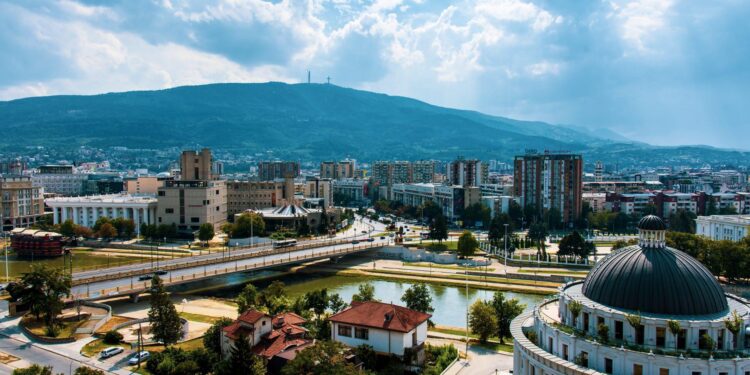The Council of Europe has been called upon to provide an official opinion regarding North Macedonia, marking a significant moment in the country’s ongoing efforts to align with European standards and institutions. This request underscores the continued importance of North Macedonia’s political and legal reforms as it seeks closer ties with European bodies. Stakeholders across the region are closely monitoring the Council’s forthcoming evaluation, which is expected to influence the trajectory of North Macedonia’s integration into broader European frameworks.
North Macedonia’s Legal Landscape Under Scrutiny by the Council of Europe
Recent developments indicate that North Macedonia’s judicial reforms are under rigorous evaluation by the Council of Europe. This inquiry follows concerns raised about the effectiveness and independence of the legal system, focusing particularly on transparency, judicial appointments, and anti-corruption measures. Delegates from the Council are expected to submit a detailed opinion aimed at guiding legislative adjustments to bolster public trust and compliance with European standards. The review highlights several key areas where progress remains inconsistent, underscoring the urgency for comprehensive reform.
Key points addressed by the Council include:
- Judicial Independence: Ensuring courts operate free from political influence.
- Procedural Transparency: Enhancing openness in case management and decisions.
- Anti-Corruption Strategies: Strengthening mechanisms to combat corruption within legal entities.
- Access to Justice: Guaranteeing citizens timely and fair trial rights.
| Aspect | Status | Recommended Action |
|---|---|---|
| Judicial Appointments | Partial Independence | Introduce transparent selection panels |
| Case Transparency | Limited Public Access | Implement online case registries |
| Anti-Corruption Policies | Under Development | Enforce mandatory reporting standards |
Key Challenges and Recommendations from the Council’s Opinion
The Council highlights several significant obstacles that North Macedonia must overcome to align with European standards. Among the primary concerns are issues related to judicial independence, the efficiency of anti-corruption measures, and the protection of minority rights. The persistence of political influence within the judiciary undermines public trust and hampers the nation’s progress towards enhanced democratic governance. Additionally, gaps in implementing effective anti-corruption strategies continue to obstruct transparency and accountability across governmental institutions.
To address these challenges, the Council recommends strengthening institutional safeguards and fostering a culture of integrity within public administration. Specific suggestions include:
- Enhancing the autonomy of judicial bodies to ensure impartial decision-making processes.
- Accelerating reforms targeting corruption through comprehensive legislation and robust enforcement mechanisms.
- Promoting inclusive policies aimed at safeguarding the rights of ethnic and social minorities.
| Challenge | Council’s Recommendation |
|---|---|
| Judicial Independence | Implement strict vetting processes for judges and reduce political appointments. |
| Anti-Corruption | Establish an independent anti-corruption agency with investigative powers. |
| Minority Rights | Introduce legal frameworks ensuring equal representation and protection. |
Implications for Democratic Reform and Rule of Law Progress in North Macedonia
North Macedonia’s journey towards democratic consolidation and strengthening the rule of law is at a critical juncture. The recent request for an opinion from the Council of Europe highlights pressing challenges and opportunities that will shape the country’s political landscape. Key issues spotlighted include judicial independence, transparency in governance, and the fight against corruption-each serving as a litmus test for the country’s alignment with European standards. The Council’s guidance is expected to catalyze reforms that ensure accountability and reinforce the citizenry’s trust in democratic institutions.
Several strategic reforms are on the horizon, aiming to address structural shortcomings through:
- Enhancement of judicial accountability: Streamlining appointment processes and safeguarding judges from political interference.
- Strengthening anti-corruption mechanisms: Increasing transparency in public procurement and political financing.
- Promoting media freedom: Protecting journalists and ensuring pluralism to support informed public debate.
| Reform Area | Current Status | Expected Impact |
|---|---|---|
| Judicial Independence | Partial political influence persists | Increased public confidence and fair trials |
| Anti-corruption | Weak enforcement structures | Greater accountability and reduced corruption cases |
| Media Freedom | Pressures on journalists and limited pluralism | Enhanced public discourse and protection of free speech |
If you’d like, I can help you with a polished summary, recommendations, or any other additions related to North Macedonia’s reform efforts. Just let me know!
In Summary
As North Macedonia awaits the Council of Europe’s formal opinion, the outcome is expected to play a crucial role in shaping the country’s path toward greater European integration. Observers emphasize that this assessment will not only reflect North Macedonia’s progress in meeting key political and legal standards but also influence ongoing regional dynamics. Stakeholders across the region remain attentive, recognizing that the Council’s opinion could serve as a pivotal moment in the Western Balkans’ broader EU accession process. Further updates will follow as developments unfold.
















